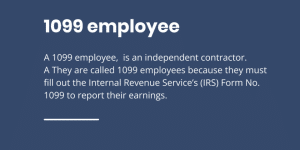Updated June 13, 2025
Retaliation in the Workplace
Retaliation in the workplace can have devastating effects on your career trajectory, leading to job loss, demotion, missed promotions, unfavorable job reassignments, reduced hours, and lost wages. As an employee, it is crucial to understand your rights and take action if you experience retaliation for engaging in a protected activity. This comprehensive guide will provide you with valuable insights on building a strong retaliation case, ensuring that you receive the compensation and justice you deserve.
Understanding Retaliation
Retaliation occurs when an employer takes adverse actions against an employee in response to their engagement in a protected activity.
Protected activities encompass a wide range of actions, including refusing to follow discriminatory orders, whistleblowing, filing discrimination complaints, participating in investigations, opposing workplace discrimination, resisting sexual harassment, discussing wages, and more.
If you believe you have experienced retaliation, it is essential to consult with an experienced employment lawyer who can evaluate your case and guide you through the legal process.
The Components of a Retaliation Claim
To establish a retaliation claim, you need to demonstrate three key components: participation in a protected activity, adverse action by your employer, and a connection between the protected activity and the adverse action. Let’s explore each of these components in detail.
1. Participation in a Protected Activity or Refusal to Obey an Illegal Act
Retaliation can occur in two forms: retaliation to opposition and retaliation to participation. Retaliation to opposition involves adverse actions against an employee who refuses to obey a discriminatory order or engages in activities opposing discrimination or harassment. On the other hand, retaliation to participation pertains to adverse actions against employees who participate in protected activities such as filing discrimination charges, opposing unlawful conduct, or being involved in investigations or proceedings related to workplace discrimination. If you have engaged in any of these protected activities, you can proceed to the next component of your retaliation claim.
2. Adverse Action by the Employer
To prove retaliation, it is crucial to establish that your employer took adverse actions against you. Adverse actions can manifest in various forms, including discrimination, harassment, demotion, suspension, termination, failure to promote, reassignment to less favorable positions, verbal abuse creating a hostile work environment, or any action that significantly affects your benefits or working conditions. While this list is not exhaustive, it highlights common retaliatory actions. If you have experienced any negative consequences as a result of engaging in a protected activity, it is important to document and gather evidence to support your claim.
3. Inference of Retaliation: Connecting the Adverse Action and the Protected Activity
Proving the connection between the adverse action taken by your employer and your participation in a protected activity can be challenging, as direct evidence is often scarce. In most cases, retaliation claims rely on circumstantial evidence. Establishing causation requires demonstrating that the adverse action occurred as a result of your engagement in the protected activity. For example, if you requested a reasonable accommodation under the Americans with Disabilities Act and were subsequently transferred to a different job, it can be inferred that the transfer was in retaliation for your accommodation request. Similarly, if you filed a sexual harassment complaint and experienced exclusion or changes in treatment by managers and coworkers, the adverse actions can be connected to your protected activity. Building a strong case requires careful analysis of the circumstances and gathering evidence that establishes the link between the adverse action and your participation in the protected activity.
Collecting Evidence for Your Retaliation Case
Evidence is crucial in proving your retaliation claim. To strengthen your case, you need to gather relevant evidence that supports each component of your claim. Here are key types of evidence to consider:
Documentation of Discrimination or Harassment: Keep records of any instances of discrimination or harassment you experienced or witnessed. This can include offensive visuals, messages, or incidents that you believe constitute discrimination or harassment.
Record of Protected Activity: Maintain copies of any emails, letters, memos, or personal notes that document your complaints or reports of discrimination or harassment. Include the names and contact information of individuals who witnessed your complaints.
Proof of Adverse Actions: Collect any evidence that demonstrates the adverse actions taken by your employer, such as performance reviews, demotion notices, termination letters, witness statements, or any other relevant documentation.
Financial Impact: If you have suffered financial losses as a result of the retaliation, gather documents that show your earnings prior to the retaliation, including pay stubs, W-2 forms, or other income-related records. Additionally, document any additional financial losses, such as medical expenses that would have been covered by lost benefits.
Corroborating Witnesses: Identify individuals who can provide testimony or witness statements supporting your claims. These witnesses may have observed the discrimination, harassment, or adverse actions, strengthening your case.
Building a comprehensive collection of evidence is crucial to establish a strong retaliation case. Consult with an experienced employment lawyer who can guide you through the process, ensuring that you have the necessary evidence to support your claims.
The Importance of Legal Representation
Navigating the complexities of employment law and successfully proving a retaliation claim can be challenging without proper legal representation. An experienced employment lawyer can assess the strength of your case, guide you in gathering the necessary evidence, and build a strong legal strategy on your behalf. They will ensure that each component of your retaliation claim is effectively addressed and presented in a compelling manner. With their expertise, you can navigate the legal process with confidence and increase your chances of obtaining a favorable outcome.
Conclusion
Experiencing retaliation in the workplace can be emotionally and professionally challenging. However, by understanding your rights and taking appropriate legal action, you can protect yourself and seek justice. Building a strong retaliation case requires a thorough understanding of the three key components: participation in a protected activity, adverse actions by your employer, and establishing a connection between the adverse action and the protected activity. By collecting relevant evidence and seeking the guidance of an experienced employment lawyer, you can strengthen your case and increase your chances of obtaining a favorable resolution. Remember, you have the right to a workplace free from retaliation, and taking action is essential to protect your rights and ensure a fair working environment.
Consulting a Los Angeles employment attorney will provide you with the necessary guidance and support to navigate the legal process effectively. Remember, time is of the essence, so seek legal advice promptly to maximize your chances of a successful outcome.
Call Setyan Law at (213)-618-3655 for a consultation.






